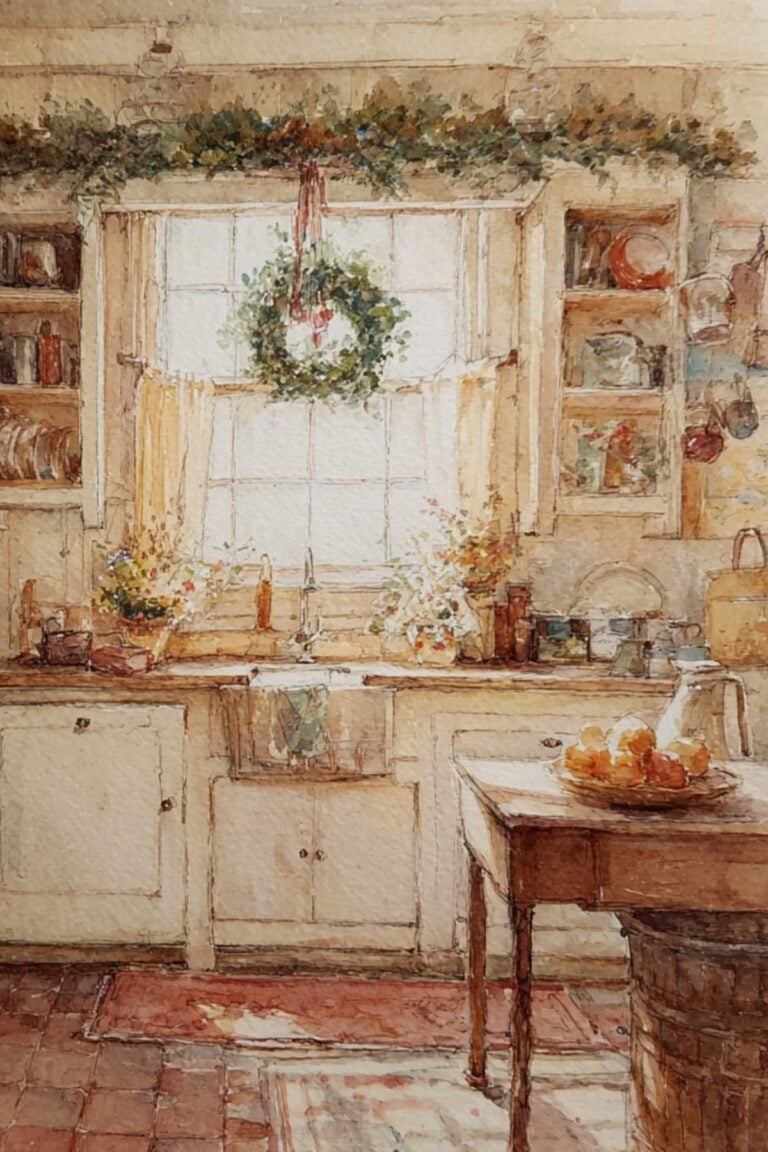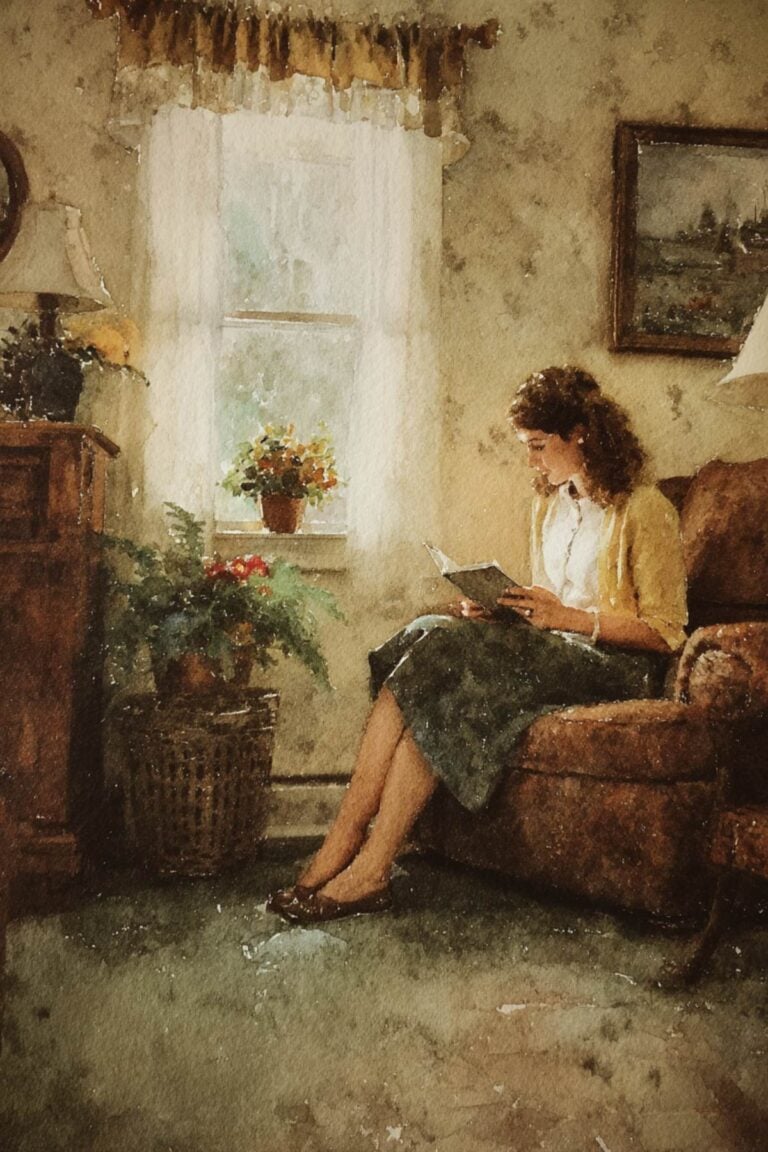Inside: How to live on nothing and still make it. This article on radical simplicity might inspire you to change your life, or it might just be fun to read. Take what works for you.
This isn’t about little tips like switching insurance plans or cooking at home more. It’s about real, drastic lifestyle shifts. The kind that cut your expenses so low, you start questioning whether you even need a full-time income anymore.

You don’t have to do them all. You might not want to do any of them. Either way, here’s what it would actually take.

No logins, No guilt, no Overwhelm
Heirloom Homemaker Email Series

Create a beautiful home life based on routines. We’ll start at the beginning and build you up. Over 2000 women have gone through this and loved it. I promise you will too.
Big Change #1: Rethink Where (and How) You Live
Housing is most people’s biggest expense, and the hardest to cut. But if you’re serious about living on almost nothing, this is the place to start.
The goal here isn’t just to find cheaper rent. It’s to totally rethink what “home” even means.
Tiny homes, camper vans, shared housing—it all works if it drastically cuts your costs. A friend of mine lived rent-free for a year by house-sitting. Others rent out part of their home to cover the mortgage or live in shared spaces with friends or strangers.

You don’t need a white picket fence. You need a roof, safety, and something that makes sense long-term.
Could you rent a duplex and sublet half? Take care of someone’s property in exchange for free housing? Split a place with another family and actually like it?
Living with family is another option, and it shouldn’t be embarrassing. In many cultures, multi-generational living is the norm. If your parents or siblings have space and the relationship is good, this can be a smart move. It doesn’t mean you’ve failed. It means you’re choosing breathing room over pride. You help out, show respect, and avoid paying rent while you build a better future. That’s not failure!
Big Change #2: Find New Ways to Get the Basics
If you’re trying to live on almost nothing, you still need food and clothing. But you can’t grow a garden if you don’t have land, and even seeds cost money. So how do people actually do this?
You get creative. You get humble. And sometimes, you get a little scrappy.
Some people barter. Not with money, but with time, skills, or things they already have. Maybe you watch someone’s kids. Fix a small appliance. Clean a house. Help a neighbor and walk away with eggs or groceries instead of a paycheck.

Some people forage. Not just in the woods, but in the excess all around us. Grocery stores toss perfectly good food every single day. So do bakeries and restaurants. It’s not glamorous, and it’s not legal everywhere. But it happens. And it works.
Clothes? You wear them until they fall apart. You patch them. You trade with friends. You grab them from swap tables or free boxes or the last hour of a yard sale when everything’s being left out for the taking.
Of course this sounds strange. That’s because it is. This way of living doesn’t fit inside the world most of us are used to. You can’t live like this and be “normal.” But that’s kind of the point.
Big Change #3: Stop Living Like a Car is a Need
Cars are expensive. Not just to buy, but to keep. Gas, insurance, repairs, inspections, parking. Miserable. And if you don’t have money, it’s impossible.
Most of us treat having a car like it’s just part of life. But it’s not! It’s a choice. And for some people, it’s a choice that doesn’t make sense anymore.
Some walk, some bike. Some stay close to home and build their life around what’s nearby. If you’re not commuting to work or running around town all week, your need for a vehicle shrinks more than you might think.

In some places, public transportation makes this a lot easier. In others, it might mean carpooling with a neighbor, borrowing a car when needed, or trading a ride for something else. It’s not always simple. But it is possible.
This kind of shift can feel uncomfortable at first. You give up convenience. You have to plan ahead. But you also slow down. You stay put.
Other Things That Help
The big changes: housing, food, and transportation will move the needle the most. But there are smaller things that make this kind of life a little easier, too.
Look for ways to share resources. Some towns have tool libraries, community gardens, or free swaps. If yours doesn’t, start something simple. A group chat. A ride board. A shared freezer. You have to be willing to give, too, which often means volunteering your time and energy.
Want to Go Deeper?
If this kind of life speaks to you or just makes you curious, I think you’ll like these.

- r/simpleliving , a calm, intentional space to talk about slowing down and simplifying.
- Permies.com, an old-school but useful forum on off-grid living, homesteading, and extreme thrift.
- The Shockingly Simple Math Behind Early Retirement, Mr. Money Mustache’s most famous post.
- The Tightwad Gazette (look for archived columns and used copies), a frugal classic with surprisingly timeless ideas.
But if you aren’t quite ready for what I’m talking about here (neither am I!), these might be more your speed:
This article was weird, and I know it. Most of us will never do any of these. But maybe it will at least remind you that there is always a choice.









I absolutely love your site! I’ve lived a lot like this in 61 years of marriage. It’s been very satisfying for me personally. Makes me feel so good knowing what I’ve acommplished. Plenty food in freezer, pantry & canned at home from our garden. A wonderful life. You learn to do Things you never dreamed you could. Figure it out!!Great site!! Keep it up.
hi Delores! thank you so much. I’m sure there is so much we could learn from you.
Not weird at all! It’s really how it should be in my opinion. These days people feel the need to have to run all over the place and it’s just added more stress to society and the need for people to feel like they have to just keep pumping out money to pay for all the things. And to the person who made mention of medical care and doctor’s appointments, that’s a whole other aspect where people used to know more about creating herbal and home remedies, thereby being able to take care of most medical needs themselves versus relying on modern medicine.
Nicole, I couldn’t agree more – well stated!
Very interesting article!
I would add extreme minimalism and essentialism to the list 🙂
great points!
I don’t comment on many blog posts but I have to say unloved yours! My husband and I sold our mobile home to move into our 16 foot camper while renovating a 23’ x 23’ pier and beam shop that was already on our property into a tiny house. Has it been easy, no. Has it been worth it, absolutely! We harvest deer and wild boars and process for meat and we’re hoping to have a small garden this year. We’re always looking for ways to make a little side cash through recycling or selling items we make. We love it! It’s not normal to most but like I like to say “This is our abnormal normal.”
Be blessed and keep doing what you’re doing!
Over simplified. Some good ideas but being fully self sustaining is extremely difficult. Not to mention health care, teeth, food etc.
I meant to say I LOVED YOURS not unloved!!! 🤦🏻♀️
hi faith, I understood :)! sounds like a dream and adventure. congrats to you for doing what so many so can’t be done!
So helpful! Thank you
Hey Sydney, you’re so welcome! I’m so glad you found it helpful.
Thank you I love all of this
I love this. Thank you
Hi. I just wanted to say thank you for this site. I am always encouraged by the things I read here. I know it is a lot of work and I wanted to make sure you knew it was appreciated. I love all the artwork you use in your posts. I hope you have a blessed new year!
edie thank you so much. YOU are appreciated! my daughter creates the artwork using AI. I will let her know you like it!